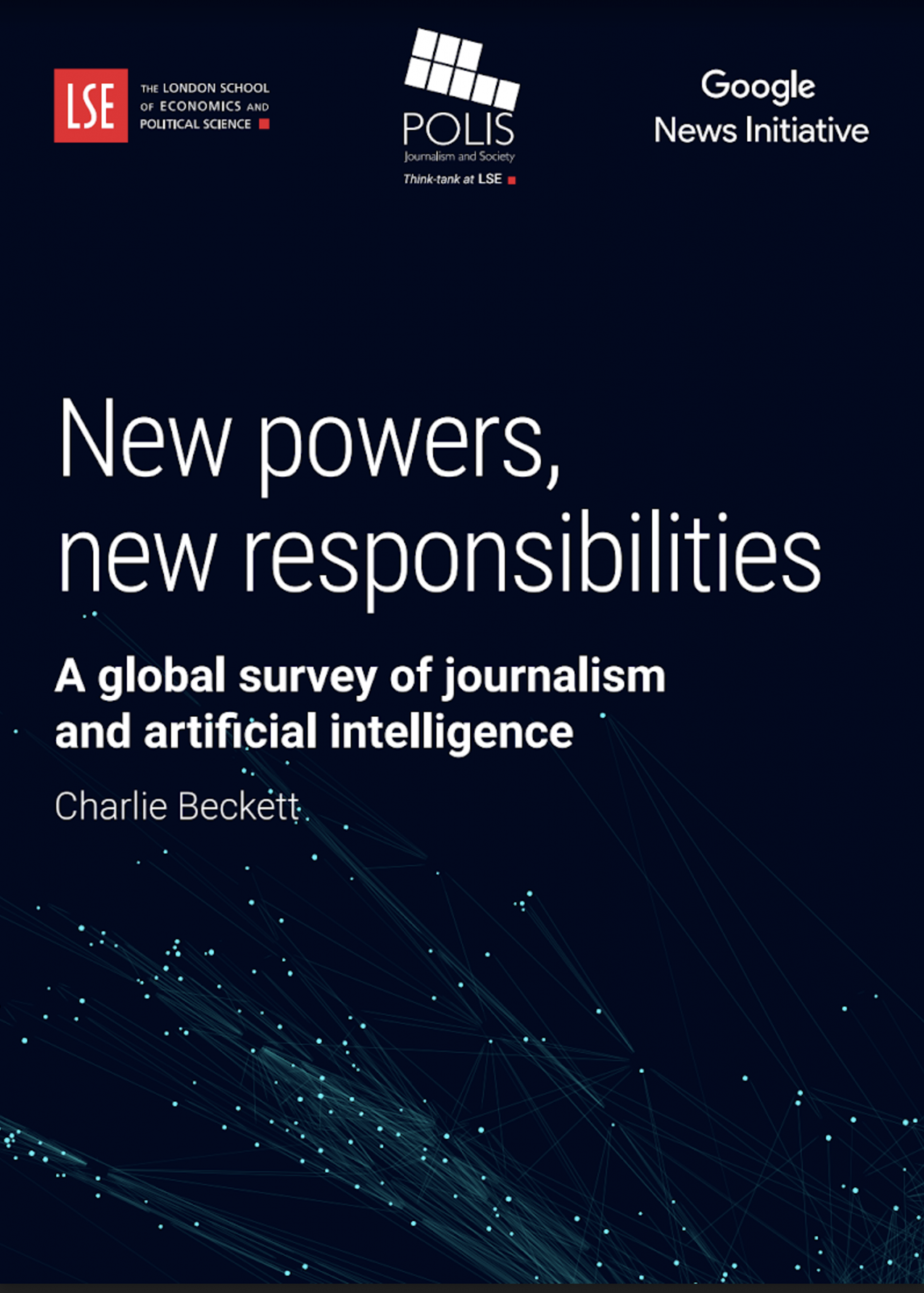
Artificial intelligence empowers journalists in new ways and does not substitute them as stated in a recent report by Polis, the media and journalism think-tank of London School of Economics and Political Science.
The report invites the readers to delve deeper into understanding the debate around journalism and AI, based on the insights provided by journalists who have been working with AI related technologies in 71 news organizations from 32 different countries. According to the report, the interviewed journalists’ use of AI falls into the three main areas of: news gathering, news production and news distribution.
With a common perception that machines will gradually replace humans in the journalism profession, this report suggests otherwise; embracing AI can save professional journalism and make it more sustainable. AI provides a potential to capacitate journalists and equip them with the necessary tools to cope with the rapidity and abundance of information, hence enhancing the quality of their products.
Respondents had different ideas regarding how AI could improve journalists’ work, mostly around “connecting better created content more effectively to audiences”, “dealing with misinformation and verification”, as well as using “any efficiencies to free up resources for enhanced newsroom functionality and for new or improved content and services”. Such ideas reflect aspirations that AI helps in improving journalists’ efficiency and hence the quality of their work.
But how could AI be actively used by journalists? It is important to note that embracing AI is not only about integrating new technologies into the different areas of work in the newsroom, but further about a new vision of journalism and the ability to develop a strategy. Only 37 percent of respondents “claimed to have an active AI strategy”, confirming that embracing AI in news organizations is still in the phase of experimentation as the report reveals.
A change in the longstanding mind-set of the journalism industry is vital for reviving and diffusing quality journalism. This can be achieved by wisely seizing the opportunities AI provides for the industry while bearing in mind the consequences. As suggested by the name of the report- “New Powers, new responsibilities“- journalists realize that with the new power AI gives them, “come editorial and ethical responsibilities”. As highlighted by Polis founding director and author of this report, Charlie Beckett: “It’s really important that we understand both the powers and opportunities it brings but also that challenges and risks”.
With its core value of informing, educating and invigorating debates in the public sphere, journalism is a profession that have and will always require humans to carry on with its mission. Nonetheless, in a rapid technology driven ambient and a communication ecosystem that is evolving by the day, coping is inevitable for professional news media. Embracing and taking advantage of the opportunities provided by AI is indispensable in the path towards quality journalism.